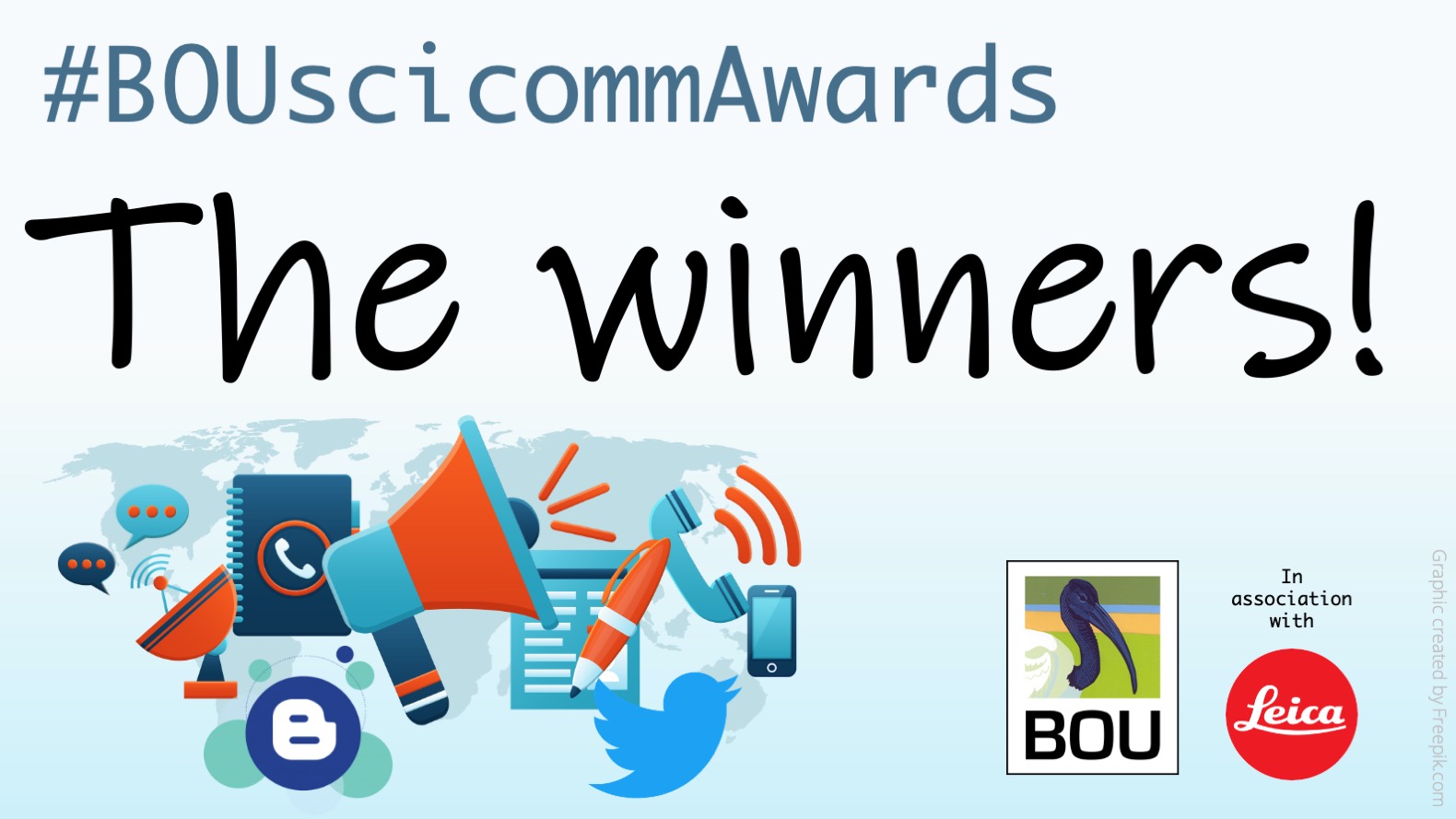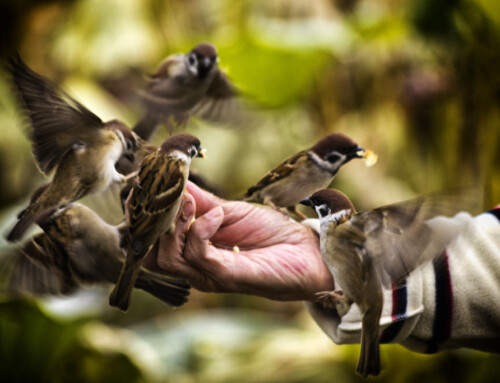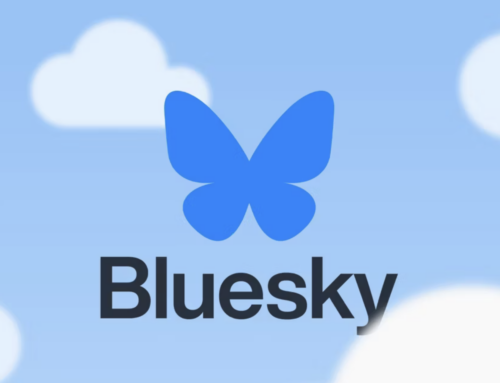It’s with great pleasure that we announce the winners of the BOU’s first-ever science communication awards.
Best social media scicommer
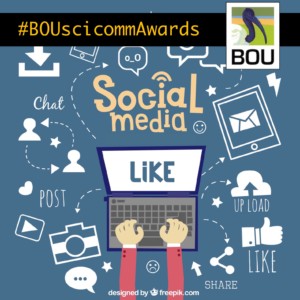
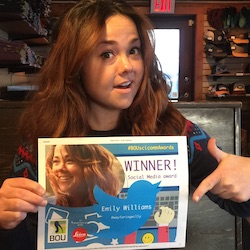
Emily Williams
“I never expected a nomination for a scicomm award!”
Best of #theBOUblog
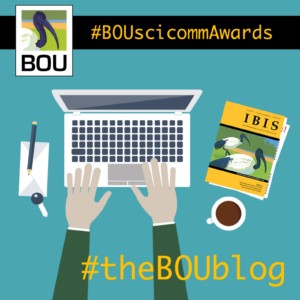
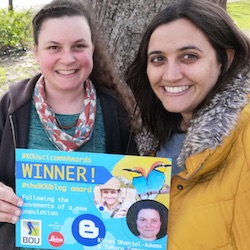
Kiran Dhanjal-Adams
and
Tamara Emmenegger
“It feels really nice to have won and highlights the importance of distilling our research.”
When I was asked to chair the judging panel for these awards I was very excited about the idea of celebrating ornithology science communication.
Researchers put lots of time, energy and passion in to communicating their work, just like they do with their research, and I think it’s hugely important to recognise and celebrate these efforts. In fact, we should all try to celebrate people like our short-listed nominees for our two awards as they do an amazing job including inspiring others to do their own scicomm. See all the nominees for our two awards
These BOU scicomm awards have also shown once more how much the BOU is at the forefront of promoting science communication within ornithology, championing the use of social media for promoting and discussing research, and #theBOUblog is one of the most-read avian science blogs in the world – in 2019 it received over 51,000 page reads!
We thought the best way to celebrate our winners was to give space to their own words, so I asked them a couple of simple questions about their scicomm and the role it plays in their research.
You won! How does it feel? What does the award mean to you?
 It feels really nice to have won and highlights the importance of distilling our research, which is often quite technical (and let’s be frank, scientific writing can be quite boring!), into something more accessible and fun for everyone.
It feels really nice to have won and highlights the importance of distilling our research, which is often quite technical (and let’s be frank, scientific writing can be quite boring!), into something more accessible and fun for everyone.
 I was so excited and surprised when I was nominated as a finalist. I never expected a nomination for a scicomm award! There are so many people out there doing incredible science communication that have huge impact and are so far-reaching in their efforts. From my perspective, it’s easy to feel like I’m not doing enough – as far as not doing more on the ground conservation work, getting more people engaged with science, doing my own part to make changes in my community and environment, et cetera – so, it was really nice to be just nominated for this award and be recognized for what I’ve done.
I was so excited and surprised when I was nominated as a finalist. I never expected a nomination for a scicomm award! There are so many people out there doing incredible science communication that have huge impact and are so far-reaching in their efforts. From my perspective, it’s easy to feel like I’m not doing enough – as far as not doing more on the ground conservation work, getting more people engaged with science, doing my own part to make changes in my community and environment, et cetera – so, it was really nice to be just nominated for this award and be recognized for what I’ve done.
What’s your purpose and motivation to do science communication?
 A lot of interesting scientific findings get hidden behind scientific jargon (and often behind a paywall). However, writing a blog post allows us to communicate to a wider audience and explain why our findings are not only of interest to us, but everyone.
A lot of interesting scientific findings get hidden behind scientific jargon (and often behind a paywall). However, writing a blog post allows us to communicate to a wider audience and explain why our findings are not only of interest to us, but everyone.
We like the creative process of preparing science results in a public-friendly way.
 In doing scicomm, my purposes and motivations are multi-faceted. In some ways, some of them are selfish. I can’t tell you how good it makes me feel to be connected with schoolkids and classrooms that tune into my weekly #WhosePoo game (I must give a particular shout out to a classroom I regularly engage with in Alberta, Canada at Cooper’s Crossing School – Mr Russ’s class!). Witnessing how students and teachers get engaged with this stuff (drawing pictures of animals, using the opportunity to talk about ecosystems, animal ecology, etc.) is amazing and humbling. Beyond connecting with students and educators, it has been so rewarding to also connect with so many others who may not have access to science in other ways.
In doing scicomm, my purposes and motivations are multi-faceted. In some ways, some of them are selfish. I can’t tell you how good it makes me feel to be connected with schoolkids and classrooms that tune into my weekly #WhosePoo game (I must give a particular shout out to a classroom I regularly engage with in Alberta, Canada at Cooper’s Crossing School – Mr Russ’s class!). Witnessing how students and teachers get engaged with this stuff (drawing pictures of animals, using the opportunity to talk about ecosystems, animal ecology, etc.) is amazing and humbling. Beyond connecting with students and educators, it has been so rewarding to also connect with so many others who may not have access to science in other ways.
Beyond feel-good reasons, I’m invested in doing scicomm because it is critical to so many things. Probably now more than ever, scicomm is crucial in dispelling myths about science, illustrating science’s large application and relevance to everyday life and how it can be used to solve real-world problems, to help make informed decisions about the world around us, building trust in science, and making positive change.
Scicomm demonstrates that science is for everyone and showcases that scientists are approachable, and can (and should) look like anyone. There are so many incredible science communicators I’ve come across on social media that are literally moving mountains in paving the way (through their work and leading by example) for people from underrepresented backgrounds to pursue careers in STEM fields.
From a more pragmatic perspective, I also engage in science communication because it’s critical to making people care about what I (and so many others) do. Without that, getting funding for science, and in turn, actually making tangible change, would be impossible.
Why do you think more people should give it a go?
 Our salaries as researchers come from the people out there. I guess we owe it to them to work up and communicate our results. Even the most complex thing can be communicated in a comprehensible way.
Our salaries as researchers come from the people out there. I guess we owe it to them to work up and communicate our results. Even the most complex thing can be communicated in a comprehensible way.
We were very surprised at the number of people who had heard about our research, having had it publicised though the BOU blog. It’s a great to have a community of people with similar interests to share and discuss our findings with.
Science communication is fun and it’s accessible to everyone. And if you feel you’re lacking ideas or talent, team up with your colleagues. It is more fun as a team anyway!
 More people should give scicomm a go because it also improves you as a person and as a professional. It’s so easy to get stuck in your tiny corner of research and only think birds all the time (I know BOU/BOU followers should at least be a receptive audience to this!) and Twitter is a complete antidote to this. I have learned so much from the people I follow on Twitter. I learn about so many cool things that I wouldn’t necessarily be learning otherwise – it’s not like I regularly peruse the pages of Molecular Immunology or the Journal of Cosmology! Having immediate access to all kinds of science broadens my thinking about my own tiny corner of ornithology. Beyond increasing your science worldview, scicomm also helps facilitate phenomenal connections with other scientists, other STEM professionals, educators, and “lay” people, can result in collaborations, and in the most ideal circumstances, produce policy/conservation change at a number of levels.
More people should give scicomm a go because it also improves you as a person and as a professional. It’s so easy to get stuck in your tiny corner of research and only think birds all the time (I know BOU/BOU followers should at least be a receptive audience to this!) and Twitter is a complete antidote to this. I have learned so much from the people I follow on Twitter. I learn about so many cool things that I wouldn’t necessarily be learning otherwise – it’s not like I regularly peruse the pages of Molecular Immunology or the Journal of Cosmology! Having immediate access to all kinds of science broadens my thinking about my own tiny corner of ornithology. Beyond increasing your science worldview, scicomm also helps facilitate phenomenal connections with other scientists, other STEM professionals, educators, and “lay” people, can result in collaborations, and in the most ideal circumstances, produce policy/conservation change at a number of levels.
At a more human level, doing scicomm and being connected with other science communicators through social media has been instrumental in making me be a more thoughtful person, especially when it comes to intersectionality and the invisible (and often explicitly visible!) barriers in science. While it may sound ridiculous because Twitter can be a terrible place in a lot of ways (trolls, politics, etc.), it can also be an amazing place and I often joke to people that Twitter has helped me become a better person. Just as it has helped expand my thinking for science, it has also expanded my thinking in considering all the different ways we can make science a better and more welcoming place for everyone.
Beyond the obvious that birds are awesome, I cannot underscore enough the importance of doing ornithology scicomm. Birds are some of the most well-studied organisms in the world and most people know a thing or two about birds. But the more I do ornithology scicomm however, the more I realize people take for granted that we know a lot more than we do. That’s where #ornithology scicomm has a huge role to play – in showcasing all the cool stuff we’re learning about birds that people kind of assume we already know, and then highlighting a cool take on that reality or any misconceptions people may have.
I had a great time getting to know more about the work of our finalists and winners and have learnt a lot about their research too.
It was fantastic to receive so many good nominations and while we are now congratulating the winners, we also want to recognise all the short-listed nominees for our two awards. As our socoal media award winner, Emily, told me “The BOU nominated a fantastic suite of ornithology scicommers that I was just honoured to be among. Many not only produce stellar science, but their ability to communicate that science in a really engaging and fun way is also outstanding. While I feel very lucky to have been awarded, every one of the nominees were very deserving.”
Congratulations again to the winners and kudos to all the nominees, we hope their work has inspired more people in the ornithology community to give science communication a go!
We’d also like to the thank Leica UK for kindly providing prizes of Leica Trinovid compact binoculars for each of the awards.
See all the nominees for our two awards
Learn more about communicating your research using social media
We have many articles on the benefits of using social media for research. Here are a few, and many more here.
Tweeting birds: online mentions predict future citations in ornithology Royal Society Open Science
How social are ornithologists? IBIS Viewpoint and NOAC2016 poster
Twitter #masterclass 15: Tag it
Twitter #masterclass 14: Twitter threads
Twitter #masterclass 13: Improve your profile
Twitter #masterclass 12: Twitter best practices
Let the BOU work for YOU . . altmetrics
Let the BOU work for YOU . . blogging
Let the BOU work for YOU . . on social media
The benefits of blogging about your research
Making social media and the web work for you
Social media is relevant to your research
Presentations from the BOU’s ‘social media in ornithology’ workshop at #EOU2015
What do you mean you ‘don’t know how to optimize your paper for SEO?!


